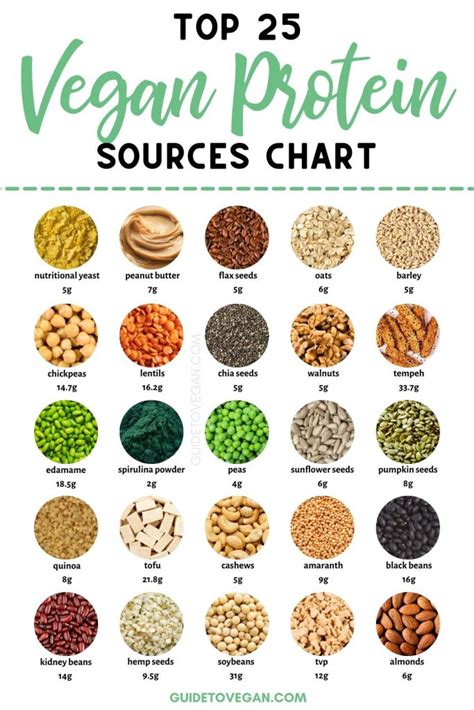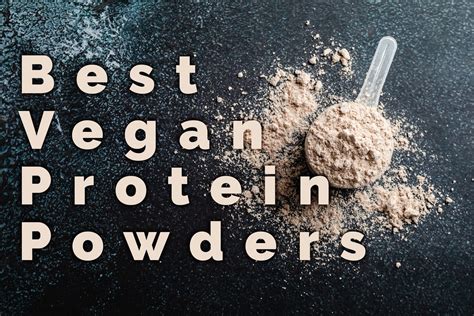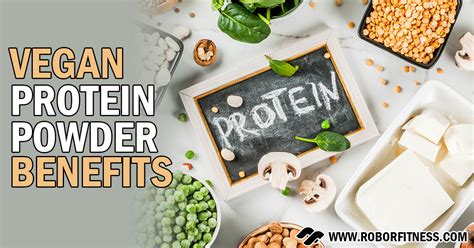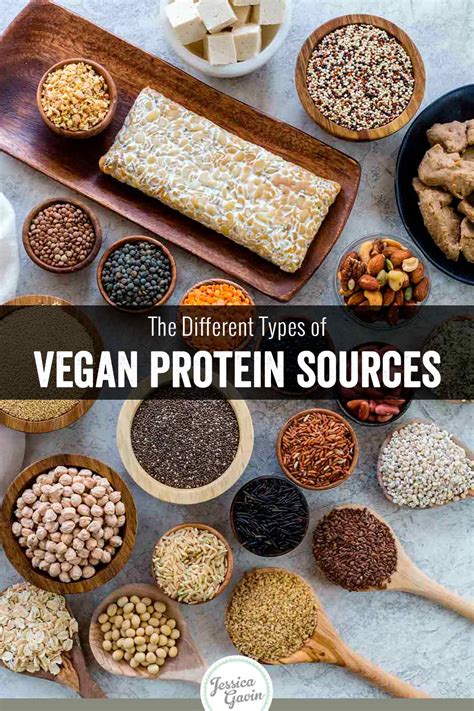Intro
Discover the ultimate Vegan Protein Sources Guide, featuring plant-based protein powders, legumes, nuts, and seeds, for a balanced diet and optimal nutrition, with expert tips on meal planning and supplementation.
The importance of protein in our diets cannot be overstated, as it plays a crucial role in building and repairing tissues, producing enzymes and hormones, and maintaining overall health. For those who follow a vegan lifestyle, finding adequate protein sources can be a challenge. However, with a little knowledge and planning, it's easy to ensure that you're getting enough protein from plant-based sources. In this article, we'll explore the various vegan protein sources available, their benefits, and how to incorporate them into your diet.
Protein is an essential nutrient that should be a part of every meal, and vegans can easily meet their daily protein needs by consuming a variety of whole, plant-based foods. Legumes, beans, lentils, tofu, tempeh, and seitan are all high in protein and can be easily incorporated into a vegan diet. Additionally, nuts, seeds, and whole grains are also good sources of protein, making it easy to get enough protein from a variety of sources. With a little creativity and experimentation, vegans can enjoy a wide range of delicious and protein-rich meals.
A well-planned vegan diet can provide all the necessary protein for optimal health, and there are many benefits to choosing plant-based protein sources over animal-based ones. Plant-based proteins tend to be lower in saturated fat and higher in fiber, vitamins, and minerals, making them a healthier choice for those looking to improve their overall health. Furthermore, plant-based protein sources are more environmentally friendly and sustainable, as they require less land, water, and energy to produce than animal-based protein sources.
Vegan Protein Sources

There are many vegan protein sources available, each with its own unique benefits and nutritional profile. Some of the highest protein-containing foods for vegans include legumes, beans, lentils, tofu, tempeh, and seitan. These foods are not only high in protein but also rich in fiber, vitamins, and minerals, making them a nutritious addition to a vegan diet. Other good sources of protein for vegans include nuts, seeds, whole grains, and soy products.
Legumes
Legumes are a type of plant-based food that includes beans, lentils, and peas. They are some of the richest sources of protein in the plant-based world and are also high in fiber, vitamins, and minerals. Some examples of legumes include chickpeas, black beans, kidney beans, and lentils. Legumes can be easily incorporated into a vegan diet by adding them to soups, stews, salads, and stir-fries.Beans
Beans are a type of legume that are high in protein and fiber. They are also rich in vitamins and minerals, making them a nutritious addition to a vegan diet. Some examples of beans include black beans, kidney beans, pinto beans, and navy beans. Beans can be used in a variety of dishes, such as soups, stews, salads, and chili.Lentils
Lentils are a type of legume that are high in protein and fiber. They are also rich in vitamins and minerals, making them a nutritious addition to a vegan diet. Lentils can be used in a variety of dishes, such as soups, stews, curries, and salads.High Protein Vegan Foods

Some of the highest protein-containing foods for vegans include tofu, tempeh, and seitan. These foods are made from soybeans and are high in protein, making them a great option for vegans looking to boost their protein intake. Other high protein vegan foods include nuts, seeds, and whole grains.
Tofu
Tofu is a soy-based food that is high in protein and can be used in a variety of dishes. It is made by curdling soy milk with a coagulant and then pressing the curds into a block of varying firmness. Tofu can be marinated, baked, grilled, or stir-fried, making it a versatile addition to a vegan diet.Tempeh
Tempeh is a fermented soybean product that is high in protein and probiotics. It has a nutty flavor and can be used in a variety of dishes, such as stir-fries, salads, and sandwiches.Seitan
Seitan is a meat substitute made from wheat gluten and is high in protein. It has a chewy texture and can be used in place of meat in many dishes, such as stir-fries, stews, and casseroles.Vegan Protein Powder

For those who are looking for a convenient way to boost their protein intake, vegan protein powder is a great option. There are many types of vegan protein powder available, including pea protein, hemp protein, and brown rice protein. These powders can be easily mixed with water or a plant-based milk and can be a great addition to a post-workout smoothie or meal replacement.
Pea Protein
Pea protein is a highly digestible protein powder made from yellow split peas. It is high in protein and low in fat, making it a popular choice among vegans.Hemp Protein
Hemp protein is a complete protein powder made from hemp seeds. It is high in protein and contains all nine essential amino acids, making it a great option for vegans.Brown Rice Protein
Brown rice protein is a hypoallergenic protein powder made from brown rice. It is easy to digest and is a great option for those with sensitive stomachs.Benefits of Vegan Protein

There are many benefits to choosing vegan protein sources over animal-based ones. Plant-based proteins tend to be lower in saturated fat and higher in fiber, vitamins, and minerals, making them a healthier choice for those looking to improve their overall health. Additionally, plant-based protein sources are more environmentally friendly and sustainable, as they require less land, water, and energy to produce than animal-based protein sources.
Lower Saturated Fat
Plant-based proteins tend to be lower in saturated fat, which can help to reduce the risk of heart disease and other health problems.Higher in Fiber
Plant-based proteins are often higher in fiber, which can help to promote digestive health and support healthy blood sugar levels.Environmentally Friendly
Plant-based protein sources are more environmentally friendly and sustainable, as they require less land, water, and energy to produce than animal-based protein sources.Incorporating Vegan Protein into Your Diet

Incorporating vegan protein into your diet can be easy and delicious. Here are some tips for getting enough protein on a vegan diet:
- Eat a variety of whole, plant-based foods, including legumes, beans, lentils, tofu, tempeh, and seitan.
- Include a source of protein at every meal, such as adding beans to your salad or using tofu in your stir-fry.
- Experiment with different types of vegan protein powder, such as pea protein, hemp protein, and brown rice protein.
- Consider consulting with a registered dietitian or a healthcare professional for personalized nutrition advice.
Meal Ideas
Here are some delicious and protein-rich meal ideas for vegans:- Lentil soup with whole grain bread
- Chickpea salad with mixed greens and whole grain wrap
- Tofu stir-fry with brown rice and mixed vegetables
- Vegan chili with quinoa and mixed vegetables
- Smoothie bowl with pea protein, banana, and almond milk
Conclusion and Next Steps

In conclusion, getting enough protein on a vegan diet is easy and delicious. By incorporating a variety of whole, plant-based foods into your diet, including legumes, beans, lentils, tofu, tempeh, and seitan, you can easily meet your daily protein needs. Additionally, considering vegan protein powder, such as pea protein, hemp protein, and brown rice protein, can be a great way to boost your protein intake. Remember to always consult with a registered dietitian or a healthcare professional for personalized nutrition advice.
We invite you to share your favorite vegan protein sources and meal ideas in the comments below. If you have any questions or need further guidance, please don't hesitate to ask. Let's work together to create a community that supports and promotes healthy, sustainable, and compassionate living.
What are some high protein vegan foods?
+Some high protein vegan foods include legumes, beans, lentils, tofu, tempeh, and seitan. Other good sources of protein for vegans include nuts, seeds, whole grains, and soy products.
How much protein do I need on a vegan diet?
+The amount of protein you need on a vegan diet varies based on your age, sex, weight, and activity level. Generally, it is recommended that vegans consume 0.8-1.2 grams of protein per kilogram of body weight per day.
Can I get enough protein from plant-based sources?
+Yes, it is possible to get enough protein from plant-based sources. By eating a variety of whole, plant-based foods, including legumes, beans, lentils, tofu, tempeh, and seitan, you can easily meet your daily protein needs.
